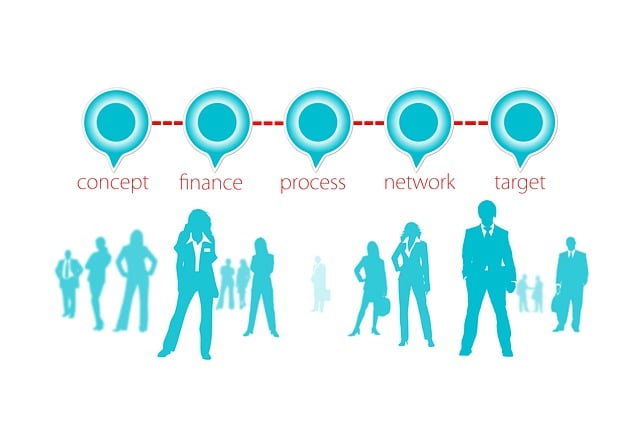In the competitive Real Estate sector, staying ahead of market dynamics is crucial for success. Professionals achieve this by monitoring demographic shifts, economic trends, and policy changes, utilizing advanced analytics to understand property values and tenant preferences. Informed decision-making, strategic budgeting, scenario planning, and diversification across property types and locations are key risk mitigation strategies. Adaptability, driven by knowledge of consumer preferences, economic indicators, and interest rate fluctuations, empowers agents to navigate the evolving Real Estate landscape successfully.
In the dynamic realm of real estate, staying ahead of market shifts is paramount. This article equips professionals with strategies to forecast trends, budget effectively, and adapt swiftly. We delve into understanding market dynamics, exploring key indicators that shape the industry. By implementing data-driven approaches and flexible budgeting techniques, real estate pros can navigate changes smoothly. Discover actionable tips for anticipating market fluctuations and securing a competitive edge in this ever-evolving landscape.
Understanding Market Dynamics in Real Estate

In the dynamic landscape of real estate, staying ahead of market shifts is paramount for success. Understanding market dynamics involves keeping a close eye on various factors such as demographic changes, economic trends, and policy adjustments. These elements interplay to create opportunities and challenges in different sectors—residential, commercial, and industrial. By analyzing historical data and leveraging advanced analytics, investors and professionals can predict emerging patterns and anticipate shifts in property values and tenant preferences.
Real estate markets are intricate tapestries woven with threads of local and global influences. Navigating these complexities requires a deep dive into factors like unemployment rates, income growth, and infrastructure developments. As market conditions evolve, so do consumer behaviors. For instance, a growing preference for urban living or a surge in remote work trends can significantly impact rental demand and property investments. Being attuned to these shifts allows stakeholders to budget effectively, make informed decisions, and capitalize on emerging trends, ensuring their strategies remain relevant and profitable in an ever-changing real estate environment.
Strategies for Accurate Budgeting and Forecasting

In the dynamic realm of Real Estate, accurate budgeting and forecasting are paramount for success. To effectively navigate market shifts, investors and professionals must employ strategic approaches that transcend traditional methods. Utilizing advanced data analytics tools, staying abreast of macroeconomic trends, and factoring in historical patterns can provide invaluable insights into potential price fluctuations. This proactive mindset enables informed decisions regarding property acquisitions, developments, and disposals.
One key strategy involves scenario planning, where multiple forecasts are generated based on varying economic conditions. By modeling “best-case,” “worst-case,” and “most-likely” scenarios, stakeholders can prepare for a range of outcomes. Additionally, diversifying investments across different property types, locations, and market segments acts as a risk mitigation measure. Embracing these tactics ensures that budget allocations remain flexible and responsive to the ever-changing landscape of the Real Estate market.
Adapting to Shifts: Practical Tips for Real Estate Professionals

In the dynamic realm of real estate, staying agile and forward-thinking is paramount to navigating market shifts effectively. As trends evolve, professionals must embrace adaptability to ensure their resilience and success. Herein lie practical tips for real estate agents to budget and strategize accordingly: keep an eye on demographic changes and evolving consumer preferences, as these can signal emerging trends in housing demand. Stay tuned to economic indicators and interest rate fluctuations, which significantly impact the market’s pulse. Diversifying your portfolio is another strategic move; by offering a range of properties catering to different buyer personas, you enhance your appeal and mitigate risks associated with market volatility.
Additionally, fostering strong relationships within the industry becomes invaluable. Networking allows real estate professionals to gain insights into upcoming developments and potential partnerships, facilitating a proactive approach. Embracing digital tools for data analysis can provide accurate market predictions, enabling informed decisions about property acquisitions or listings. These practices ensure that real estate agents are well-equipped to forecast shifts and adjust budgets accordingly, solidifying their position in an ever-changing market.






